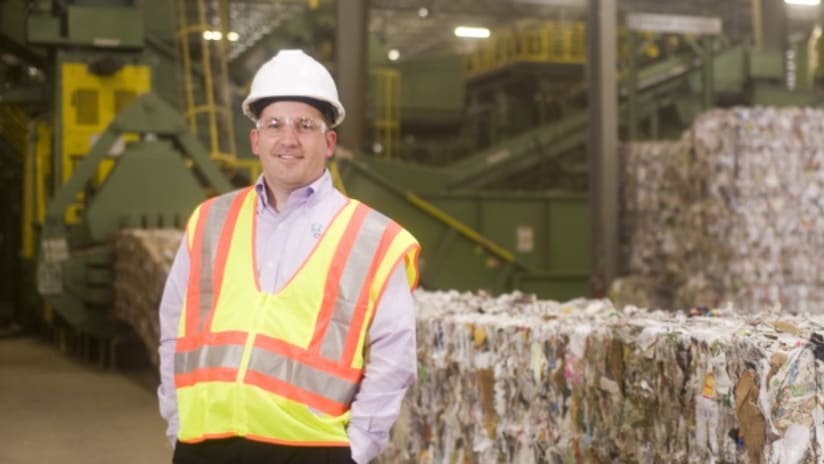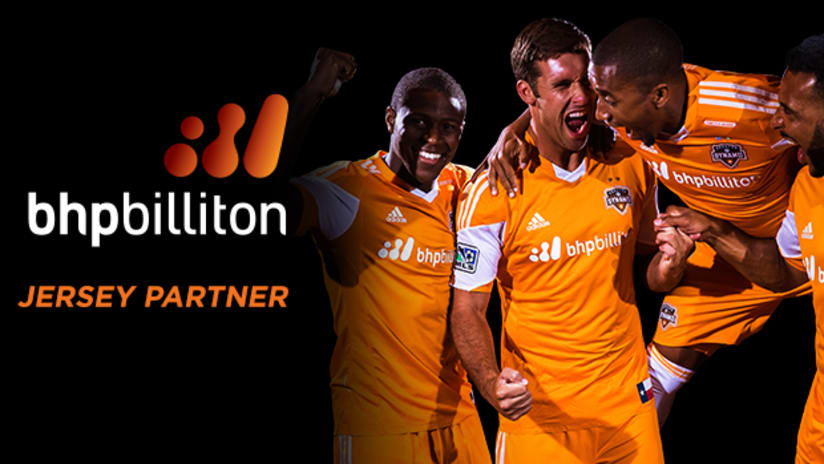With Greenstar Recycling announced on Tuesday as the new jersey sponsor of the Houston Dynamo and the first founding partner for the future Dynamo stadium, HoustonDynamo.com caught up with Greenstar CEO Matt Delnick to find out a little more about the partnership.
HoustonDynamo.com: How did Greenstar Recycling become
involved with the Dynamo, and what made this partnership such an attractive fit
for Greenstar?
Matt Delnick: We’ve done some grassroots and regional-type
sponsorships or promotional opportunities, but we were looking for a way to
bring a little more presence to that and expand people’s knowledge of us both
inside our current footprint and outside of that. … I’ve been a soccer fan
since I was a kid, I played all the way through college, and I follow
professional soccer. So for me, personally, I knew the value of being a
sponsor, jersey or otherwise, of a soccer club. We like the idea of attaching
ourselves to a growing sport in the United States that has its roots in
youth and families. From a branding standpoint, we believe it will allow us to
spread our brand more quickly and loudly.
HD: What will Greenstar bring to the Dynamo in terms of
making their facilities more ecologically efficient?
MD: The biggest misnomer in the sustainability world is that
recycling is on the bottom of the chain. We want solar, wind, more efficient
lighting – that’s important too – but the quickest way to make the best
environmental impact is recycling. The reality is recycling can have the
biggest and most immediate impact on the environment for all of us. So we’re
going to do for the Dynamo the same thing we want to do all over Houston: make it as green
as possible. So we’ll do what we do with other large corporations, and that is
increase the amount of diversion from landfills, and that is a great help to
the environment.
HD: What has the reaction been at Greenstar, especially
among people who may not have had your experience or background in soccer?
MD: The reaction at Greenstar, as people have found out
about it, has been great. We pride ourselves on being nimble and being exciting
and having a workforce people want to join and constantly having an energy
around us and bringing that energy to the recycling and waste management
sector. Our folks here are embracing this as an extension of that. To expand
our brand with the best MLS club out there right now is very exciting and very
positive for everybody.
HD: A lot of people are going to ask, ‘What is Greenstar
Recycling?’ so please tell us a little bit about what separates you from other
recycling companies.
MD: We’re different because we push single-stream recycling
heavily, and we take it to areas that don’t have it. Single-stream recycling
allows somebody to get a 64-gallon or a 96-gallon bin, and all their recycling
goes in that bin. Then our people are the ones who worry about sorting it into
the different commodities. It makes it a lot easier for people, and after the
initial education of how to use it, a lot more people will do it.
HD: How well has this strategy worked in other markets, and how
do you think it will play out in Houston?
MD: When you take a city that already has a strong recycling
program, and you take single-stream to that area, recycling rates go up from
50-300 percent. Cities are realizing that it’s a lot more beneficial to have
single-stream. Houston
will be a fantastic market. We’ve been here for a long time, and introducing
single-stream to the market is really going to be an exciting time for
recycling in Houston.
HD: If Dynamo fans are interested in supporting Greenstar,
what can they do?
MD: The best thing people can do and that we’re
calling on folks all over the Houston
metropolitan area to do is: Where there aren’t recycling options, each citizen
should push for recycling in that area. Get with your local council or mayor or
decision-makers for that entity and push them to recycle. It’s not always the
easy choice to make that change, but it’s always the best thing for the
environment and the best economical choice in the long run. Like any change, it
needs to be the citizens getting engaged and saying they’ll push the envelope
by petitioning and being engaged and getting the word out there.





